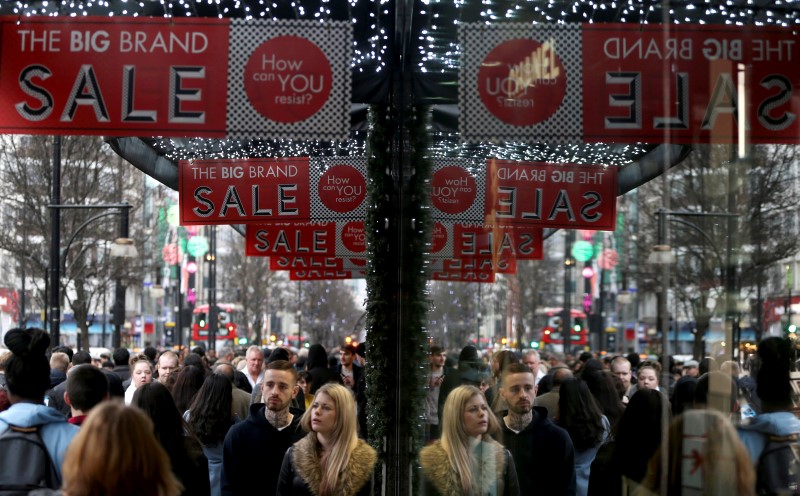LONDON (Reuters) - The number of shoppers heading to British high streets and retail centres fell at the fastest pace in more than two years in June, with the weeks around the country's vote to leave the EU hit particularly hard, a survey found.
Retail footfall across Britain was 2.8 percent lower than a year earlier in the five weeks from May 29 to July 2. This was the sharpest decline since February 2014 and down from a 0.3 percent increase in May, a survey from the British Retail Consortium (BRC) showed on Monday.
"The results are shaped by a political and economic storm against a backdrop of rain downpours and generally inclement weather throughout the whole month," said Diane Wehrle, marketing director at Springboard, a retail data company that sponsors the survey.
Britain's shock vote on June 23 to exit the European Union has sent jitters through global financial markets, sparked political chaos in Britain and sent sterling to a 31-year low.
Data showed the number of shoppers in the first week of June had risen 0.4 percent from a year earlier, but footfall was down 4.6 percent in the week of the referendum itself and was 3.4 percent lower in the week after.
For the first time since 2013, high streets, retail parks and shopping centres all showed a decline over the month. Apart from Wales, where footfall grew 0.9 percent, all other regions showed a decline, with the sharpest falls suffered in the West Midlands, London and Scotland.
The results indicated that consumer confidence had been hit despite retailers discounting throughout the period in early season sales, said Wehrle.
"The issue for retailers is how quickly shoppers will return to their usual patterns of behaviour," she added.
Earlier in the week, data also released by the BRC showed that consumer spending in June had risen by just 0.2 percent - a sharp slowdown compared to the 1.4 percent increase in May.
A number of surveys since the referendum have shown that British households -- a key driver of the economy -- have been unsettled by the outcome of the vote.
But BRC chief executive Helen Dickinson said other factors such as major televised sporting tournaments had also been at play in the latest set of data.

"June has seen many distractions from Euro 2016 to Wimbledon so heading out to the shops seems to have slipped down the priority list for many," Dickinson said in the report.